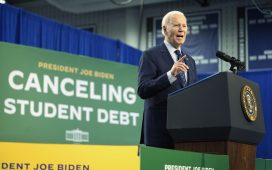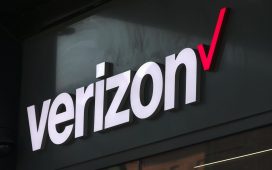Nike pulled its financial guidance for the year, reported a steep drop in revenue and postponed a highly anticipated update for shareholders, days after announcing the replacement of its CEO.
Profits at the American sportswear giant, grappling with falling sales and intense competition from fast-growing rivals, also declined. “A comeback at this scale takes time,” it said.
Shares in the firm dropped 8% during out-of-hours trading in New York.
Revenue at Nike fell 10% to $11.59bn in the three months to 31 August. Net income dropped 28% to $1.05bn over the same period.
As shareholders await plans to revive the company’s performance, it said an investor day scheduled for next month had been postponed. A new date was not provided.
“Nike’s first quarter results largely met our expectations,” Matthew Friend, executive vice-president at the firm, claimed in a statement. “A comeback at this scale takes time, but we see early wins – from momentum in key sports to accelerating our pace of newness and innovation.”
On an earnings call, Friend suggested that ditching the company’s financial guidance would provide Elliot Hill, Nike’s incoming CEO, with the “flexibility” to examine current strategies and trends “and develop our plans to best position the business” for the future.
Analysts say Nike has done little to drive demand and take back market share from brands like Deckers’ Hoka and Roger Federer-backed On.
It said last month that Hill, who was at Nike for 32 years before retiring in 2020, will take over as new CEO on 14 October, tasked with reviving sales and winning back market share.
With Hill at the helm, analysts expect Nike to begin from scratch and rebuild wholesale partnerships that had tapered under John Donahoe, the outgoing CEO.
after newsletter promotion
While Donahoe focused instead on bolstering sales through the company’s own stores and website, US retailers like Foot Locker and Dick’s Sporting Goods quickly filled the shelf space Nike had vacated with fashionable competitors like On, Hoka and New Balance.
Nike executives in March acknowledged that their direct-to-consumer push was not driving growth and had instead led to a drop in its market share.
The sportswear giant has been hurt by a lull in consumer spending in China after a frail post-pandemic recovery driven by high youth unemployment and a protracted property downturn. Consumers in the region have also begun preferring locally made products.
Reuters contributed reporting





